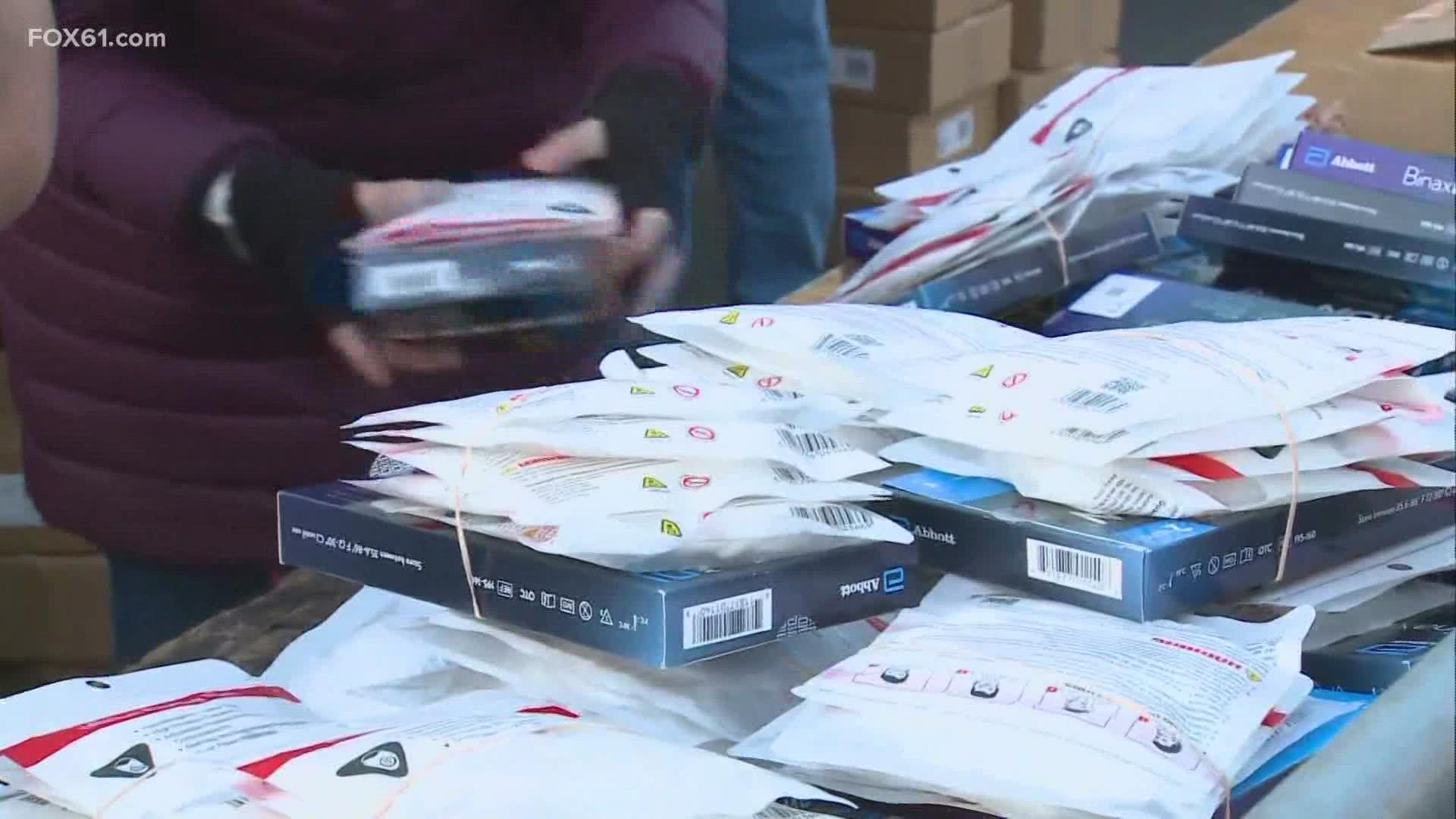HARTFORD, Conn. — We've seen the long lines, people scrambling to get at-home COVID-19 kits provided by the state, or scouring pharmacy shelves for them. These tests can give you a negative or a positive within 15 minutes, but just how reliable are they?
First, we asked Yale School of Public Health's Doctor Albert Ko, is there a difference between the rapid test kit you have at home and the one you get when at a clinic or doctor's office?
"They are essentially the same," said Dr. Ko. "There are really two important types of tests out there that we use to diagnose COVID, one is the PCR test," said Ko, "the other is a rapid test."
PCR tests are the gold standard. They are highly sensitive when it comes to detecting COVID. Those results can take longer and are generally analyzed by a lab.
Doctor Ko said rapid tests are less sensitive, but have an important role, especially when COVID cases are as widespread as we're seeing.
"They do perform better when a person is symptomatic, and likely shedding more higher levels of the virus," said Dr. Ko. "In that situation, the reliability is about 70 to 80 percent. When you're asymptomatic, that's where it's a little more problematic. The sensitivity of the test may drop down to 50 to 60 percent."
But Dr. Ko said the advantage of the rapid test is that it's convenient. They can be good to use if you are going to visit a vulnerable loved one, are about to hop on a flight, or attend an event where you want to get a quick check.
The reliability of these tests also depends on you following directions.
"Read them after the recommended length of time, don't read them an hour later. The results are not reliable then," said Dr. Sheldon Campbell, Director of Laboratory Medicine and Yale Medicine.
Dr. Campbell says if used properly they are pretty good, and if you do get a positive since they aren't as sensitive, that means you likely have a fair amount of virus in your system.
"If you get a positive with the rapid test that's ok but if you get a negative with the rapid test and you are symptomatic it's best to get a PCR," said Dr. Campbell.
Jenn Bernstein is an anchor at FOX61 News. She can be reached at jbernstein@fox61.com. Follow her on Facebook, Twitter and Instagram.
---
Have a story idea or something on your mind you want to share? We want to hear from you! Email us at newstips@fox61.com
---
HERE ARE MORE WAYS TO GET FOX61 NEWS
Download the FOX61 News APP
iTunes: Click here to download
Google Play: Click here to download
Stream Live on ROKU: Add the channel from the ROKU store or by searching FOX61.
Steam Live on FIRE TV: Search ‘FOX61’ and click ‘Get’ to download.

